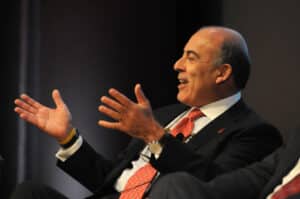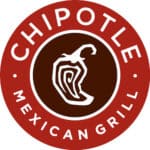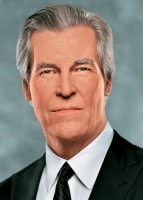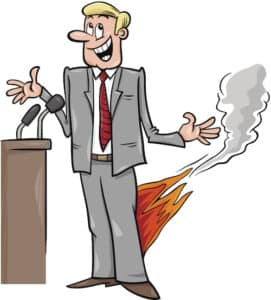Leadership Leader
Muhtar Kent, CEO of The Coca-Cola Company
You didn’t have to do anything amazing in the last month or two to be our Leadership Leader for January. You just needed to demonstrate clear, personal leadership… and Muhtar Kent has been demonstrating it for years. He’s about to turn over the CEO reins of Coca-Cola, and we thought it appropriate to use him as reinforcement to what you leaders have been beat over the head with for years.

Kent, who was with Coke from 1978 to 1999 and returned in 2005 to take the helm in 2008, gets what being a leader is all about. And he understands that leadership development isn’t about unhappy participants sitting in a training room checking their iPhones. And it’s not about this unnamed group of sleepy yahoos, either.
Kent has described leadership development as a combination of “head knowledge and heart knowledge,” and the company’s development program is the kind that works – a group of high potentials who learn how to be a part of a leadership team, taken out of their comfort zone, exposed to pieces of the enterprise they didn’t know existed, and given company-related challenges to address during a six-week program. A contiguous six-week program.
Say what?? Six non-stop weeks away from work, away from most emails and calls. Not a half-day here and there over the course of a couple of years, but 30+ days without being at the office.
How is that even possible? It’s a simple matter of priorities, and leader development seems to be quite the priority at Coca-Cola with Muhtar Kent.
Coca-Cola‘s moved up 30+ places on the Fortune 500 since Kent became CEO (a place it hasn’t seen since 1997), and Coca-Cola currently sits at #15 on Fortune’s World’s Most Admired Companies list. Not surprisingly, Kent believes that the leadership culture gives the company a sustainable, long-term advantage.

“Ultimately, leaders are judged by what they leave behind.” – Muhtar Kent, CEO, Coca-Cola Company
Congrats, Muhtar, you’ve left behind a culture that appreciates the critical contribution that leadership makes to a company’s success. We salute you as this month’s Triangle Performance Leadership Leader.
Leadership Milquetoast
Steve Ells, Founder and CEO, Chipotle
Chipotle… Foodie’s version of Tex-Mex, or petulant adolescent?

Chipotle HAS done some good things to rebound: implementing cutting-edge food safety protocols, increasing third-party audits, and — supposedly — pushing hiring levels to ensure good customer service during these labor-intensive changes.

Mistakes happen; think Tylenol’s tampering, Toyota’s accelerators, Jet Blue’s cancelled flights.
The problem is how companies—executives—deal with mistakes, not the mistakes per se. And in this, Ells has screwed up royally. Since the E-coli debacle, here’s what he has blamed for Chipotle’s crappy financial performance:
- Ells tried to saddle Monty Moran, Co-CEO for a time, for “not keeping it simple.”
- The E-coli disaster caused customer service to slip. Wait, what??
- Sick employees caused the outbreaks.
- Higher wages.
- The CDC caused it.

- Media attention caused it.
- Their tomato supplier.
- British unfamiliarity with Mexican foods (seriously),
- Their guacamole is too expensive (the most recent, and my personal favorite).
There are more, but you get the drift.
Here’s the real deal: Chipotle and Ells (sound like the show Rizzoli and Isles) have done many of the things necessary to fix their food safety problems. But they need to fix their customer problem, and that’s not just about food safety. If Ells could get that through his burrito beans, he’d be better off. Without accepting full, unqualified accountability, it’s a missed opportunity.
Until then, he—and Chipotle—are our Leadership Milquetoast.
Leadership Laggard
Terry Lundgren, CEO, Macy’s Inc.
Macy’s department store is laying off 10,000 employees in its continued effort to close 100+ stores.

However, in this case Macy’s CEO Terry Lundgren managed to dodge his way into dubious honors.
It’s one thing to say that our business model needs tweaking. Or that our direction may need to shift based on demographics, spending patterns, buyer preferences, yada yada yada. It’s another thing altogether, Mr. Lundgren, to say ”I’m sorry, there’s nothing I could do about it.” And that’s exactly what he did.

Oops. It just ain’t so.
You see, retail sales are up by almost 4% in 2016 over 2015. And in fact, several retailers did quite well, posting respectable increases in sales during 2016 and the most recent holiday season.
Online sales continue to increase, this year by another 12%. Newsflash: this is not new. Brick-and-mortar stores have had plenty of notice that they must shift their model to address this changing buyer. Just because you failed to do so, doesn’t mean you get to blame your failure on the economy as a whole.
So, while layoffs are certainly nothing new, and retail has always been a cyclical, precarious environment, the fact remains that nationwide sales increased, many stores succeeded (think Amazon, Walmart, Target, etc.), and Macy’s continued decline is a tragedy of their own making.

And to Terry Lundgren, regarding his “not my fault” stance, I say liar, liar pants on fire.
And bestow upon him this month’s Leadership Laggard.

